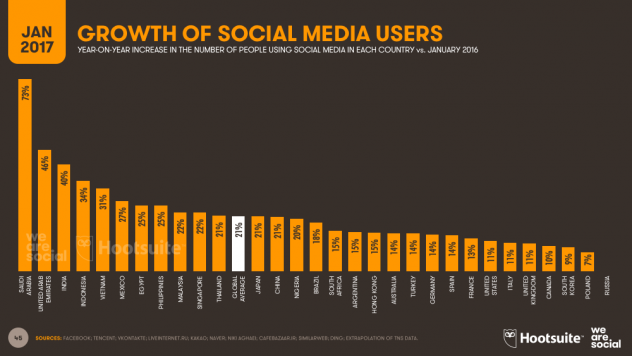Social media is growing larger every minute, and it’s not going away anytime soon.
 Businesses are learning the importance of this platform and are looking for individuals who are proficient in it. Being a skilled social media writer is not as simple as it seems. Personal posts can be designed however you want, for a business though, there are certain strategies that are benefitial to making the best post.
Businesses are learning the importance of this platform and are looking for individuals who are proficient in it. Being a skilled social media writer is not as simple as it seems. Personal posts can be designed however you want, for a business though, there are certain strategies that are benefitial to making the best post.
Short and Sweet
Most social media platforms, such as Twitter, only allow a certain number of characters per post. Even if one allows longer posts, it’s not recommended to go lengthy. When a person sees an entire paragraph, most likely they’ll keep scrolling. Keeping it simple engages the reader and gets to the point! If you do need to write a lengthier post, include a picture as an attention grabber.
#Hashtags
Hashtags are a way of connecting your post to larger posts. Creating your own brand hashtag is a great way
 to gain engagement. Hashtags are also a way for people to discover your posts. Remember to keep them relevant to your post and don’t go overboard. #No #one #wants #to #read #this. Not to mention, it’s unprofessional.
to gain engagement. Hashtags are also a way for people to discover your posts. Remember to keep them relevant to your post and don’t go overboard. #No #one #wants #to #read #this. Not to mention, it’s unprofessional.
Engage
Your readers are your audience, and it’s important to cater to them. As important as your posts may be to you, without engaging your audience, you can lose their interest. Doing this can be as simple as posting a picture to Instagram asking your viewers to “caption this.” Polls on Twitter are also a great way to gain insight into your audience’s opinions. At the end of the day, social media is about connecting to others.
Be Authentic
Just as we avoid pushy salespeople in stores, we do the same online. Don’t outright create a sales pitch, ease the tone by writing in a joke or posting a picture. You want to make your audience click to see more. Invoke their curiosity, don’t tell the whole story, add a link to make them click through. Show you’re a real human behind the computer screen.
Even though this writing may be conducted online, it doesn’t take the power away from the written word. Knowing how to harness that power for your own benefit or a company you work for is the key to success. Now that you have the knowledge, go out and take on the world, in 140 characters or less!


